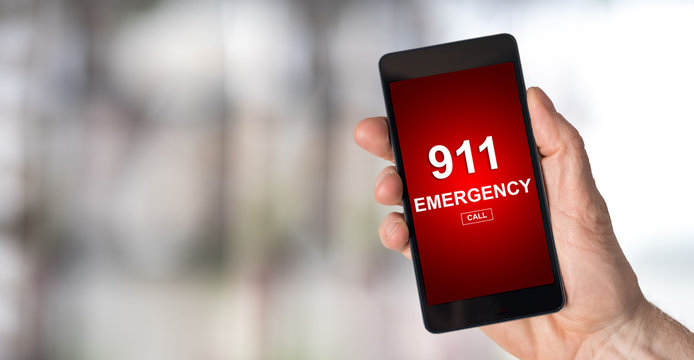Teaching your child how to use 911 is an important step in ensuring they know how to respond in an emergency. Start by explaining what 911 is— the emergency phone number to call when there’s a fire, someone is hurt, or in any situation where help is needed. Teach your child their full name, address, and phone number, as these details are crucial when making the call.
Practice role-playing scenarios so your child is comfortable with the process, ensuring they understand to stay calm, speak clearly, and answer the operator’s questions. Emphasize that 911 should only be called in true emergencies and that they should never hang up until instructed by the operator. Regular practice and open communication will help your child feel confident and prepared in case of an emergency.
Talking About 911 With Kids
It’s essential for everyone to know how to call 911 in an emergency, but children also need to understand what qualifies as an emergency. Asking questions like, “What would you do if there was a fire?” or “What would you do if someone was trying to break in?” helps you explain what emergencies are and how to handle them.
For younger kids, it can be helpful to explain who emergency workers are — police officers, firefighters, paramedics, doctors, and nurses — and how they assist in emergency situations.
When to Call 911
Teach your children that 911 should only be used when immediate help is needed due to danger or injury. Examples of situations where they should call 911 include:
- A fire
- Someone unconscious after an accident, alcohol, or drug overdose
- Difficulty breathing, such as during an asthma attack or seizure
- Choking
- Witnessing a crime, such as a break-in or assault
- A serious car accident
Kids might feel scared or nervous when calling 911. Let them know it’s normal, and that 911 operators are used to talking to nervous callers, including kids. Encourage them to stay calm and provide clear information.
Also, reassure them that even though they shouldn’t usually share personal information with strangers, they can trust the 911 operator. Explain that the operator will ask questions like:
- “What is the emergency?” or “What happened?”
- “Where are you?” or “Where do you live?”
- “Who needs help?” or “Who is with you?”
Children should share as much information as they can about what’s happening and where they are. If they’re old enough, explain that the dispatcher may provide first-aid instructions before help arrives.
Other Important 911 Tips
Make sure your children understand that making prank calls to 911 is a serious crime. Unnecessary calls can delay help for someone who truly needs it.
Teach kids to prioritize their safety before calling 911. For example, in case of a fire, they should get out of the house before making the call.
Even though 911 calls are often traced, it’s still important that your child memorizes your street address and phone number in case of an emergency.
More Safety Tips
- Always teach your children to say “nine-one-one,” not “nine-eleven,” to avoid confusion in an emergency.
- Ensure your house number is clearly visible from the street so emergency responders can easily find your home.
- If you live in an apartment, make sure your child knows the apartment number and floor.
- Keep a list of emergency numbers near each phone for easy access by your kids or babysitters.
- Maintain a well-stocked first-aid kit and teach your kids and babysitters where it is and how to use it. As children get older, teach them basic first aid.
With these guidelines, you can help your children feel confident and prepared in case of an emergency.



